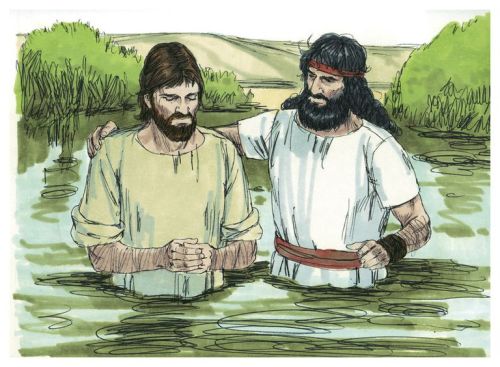
All our Christian lives, we are told that Christ died for our sins and that he himself knew no sin. We know that his own disciples did not spot references to his crucifixion and resurrection in their own Scripture (Luke 24). Nearly every Easter we hear Psalm 22, “My God, my God, why have you forsaken me?” And yet, when we read the words of confession in Psalm 32:5: I acknowledged my sin to you, and I did not cover my iniquity; I said, “I will confess my transgressions to the LORD,” and you forgave the iniquity of my sin (ESV), we balk at applying these words to the innocent Christ, and we become uncomfortable.
During the time I have studied the Psalter, more and more I become aware that the incarnated Christ is indeed human, a person, a man. The Psalter presents Christ’s humanity in a way that is “down to earth” relatable. Our shared human perceptions of experience were his shared human perceptions also. What hurts us hurt him.
Hebrews 12:2 teaches the shame of the cross–if I were hanging on a cross, I would find it extraordinarily shameful. I can relate to that. Galatians 3:13 tells us that Christ became a curse for us. Deuteronomy 21:23 explains that everyone hung to death upon a tree is cursed of God and a source of defilement for the land. Paul tells us that Christ has been sacrificed as our Passover lamb (1 Corinthians 5:7). John says, “He [Christ] is the propitiation for our sins, and not for ours only but also for the sins of the whole world,” (1 John 2:2 ESV). For “propitiation” in the Old Testament to happen, a lamb was slain and its blood sprinkled on the ark’s mercy seat, so that God’s anger against sinful believers would end. We also read about the scapegoat, upon which the priest would symbolically place “all the iniquities of the people of Israel, and all their transgressions, all their sins,” and “send him … into the wilderness” (Leviticus 16:21 ESV). Christ was also our scapegoat. Isaiah writes, “Surely he has borne our griefs and carried our sorrows; yet we esteemed him stricken, smitten by God, and afflicted,” (Isaiah 53:4 ESV).
Scripture shows us holy people of God who interceded in prayer as though they themselves were the sinful ones. Daniel prayed, “While I was speaking and praying, confessing my sin and the sin of my people Israel, … ” (Daniel 9:20 ESV). The godly Nehemiah prayed, ” … I now pray before you day and night for the people of Israel your servants, confessing the sins of the people of Israel, which we have sinned against you. Even I and my father’s house have sinned,” (Nehemiah 1:6 ESV). Paul in the New Testament wrote strongly, “For I could wish that I myself were accursed and cut off from Christ for the sake of my brothers, my kinsmen according to the flesh,” (Romans 9:3 ESV). So I ask, where in Scripture, if not in the first person voice of the psalmist, would God teach us how thoroughly Christ identified with and became humanity to the point of interceding for us as though one of our very own? 
I believe we should receive Christ’s penitent prayer as our representative in Psalm 32 for the same reason that John the Baptist allowed himself to be persuaded to baptize Jesus, because “it is right for us to fulfill all righteousness,” (Matthew 3:14 NET). I believe many have difficulty receiving Christ’s words of confession in Psalm 32 because of the difficulty we all experience in realizing just how very much one of us Christ became. Adam’s sin brought all his progeny into death and separation from God. One person, Adam, represented everyone. In the same way, Christ represents everyone (1 Corinthians 15:21-22). As our representative, Jesus personally confessed and was punished for each one of us.
As we meditate on these things, may the Holy Spirit open to our hearts this greatest of all loves with which our Creator Father loves us. May the words of John 3:16 take on a deeper texture of meaning as we consider the shame of the holy Son of God confessing our sin as though it were his own. And yet, “he endured the cross, despising the shame,” (Hebrews 12:2) because “… he who makes holy and those being made holy all have the same origin,” (Hebrews 2:11 NET). Jesus is not ashamed to call us brothers and sisters. I can only say, “Hallelujia! Thank you, Lord.” And that is just what the psalmist goes on to say in Psalm 32. We will look at that next time.
